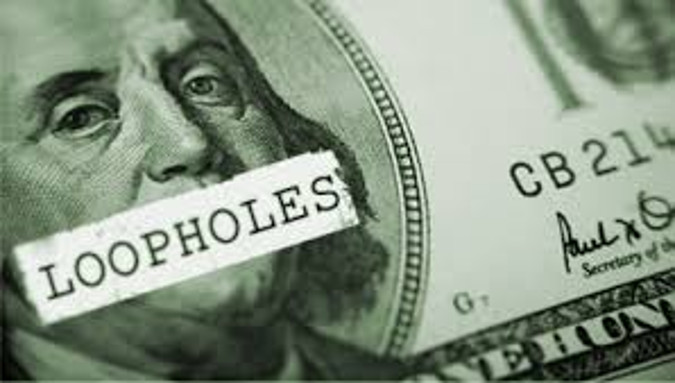Whether you love him or hate him Donald Trump reported a $900M loss in his businesses in 2017. President or not, Republican, or Democrat he is a great example of someone who knows the tax system, all the legal loopholes and tax havens that can be found. And it’s not just him; the United states is home to more millionaries and billionaires than any other country (most of which actually reside in California; a very tax-heavy state). Learning about your options, especially as you are starting to really churn some serious money is only going to save your business in the long run from giving up unecessary tax dollars!
Loopholes and Tax Havens
What’s really great is that you don’t even have to live in one of the no income tax states to take advantage of the benefit; you can simply have a “registered agent,” which essentially is just an entity with offices in the state that you want to use for state-level income tax exemption. All your business’s paperwork gets sent to them and you avoid the income tax at a state level. Legal Zoom offers these services although you can find it elsewhere for less (as little as $40/yr).
Washington, Alaska, Texas, Nevada, South Dakota, Florida, and Wyoming do not have state income tax. In most cases it simply comes down to setting up your Sole Proprieter, LLC, or S-Corp in that state. This is done through the Department of Revenue. From there you simply obtain your business license from them and then you call up the IRS for your EIN (employer identification number) and choose your tax classification; we will talk about this.
The average state income tax nation wide is 6.25% so on average this will help you to avoid an additional taxation of 6.25% on your income. Let’s talk about some more loopholes and tax havens.
Business Structure
One of the things I immediately suggest for those of you about to start a business, register a business, or change your business structure is to set up an LLC. If you set up an SP (sole proprieter) then it means that you will have to change structure if you ever have employees, you’ll spend more money later, and you are going to be taxed heavier right off the bat.
And unless your company is Apple, Microsoft, Amazon, or Wal-Mart then you have no need or benefits of setting up an S-Corp. S-Corps are tax beneficial for large corporations for several reasons, one of the biggest of which is that they can essentially be tax exempt on the portion of money that the company owner/owners elects to pay himself/herself. What I mean by this is say that your company makes $500,000 in a tax year and you as the owner elect to “pay yourself” $200K; you will only pay federal income tax on the difference after deducting your $200K salary. As an S-Corp you are not only the owner but you are also essentially an employee so the business only pays federal income tax on what it nets; in this case $300K. It comes down to simply showing on paper that your bank account received $200K in income throughout that tax year. LLCs can have the exact same tax benefits that an S-Corp has but with less limitations and regulation…

Benefits Of Setting Up An LLC
It’s more beneficial to register as an LLC from the start for many reasons;
- If you want to scale up, have employees, shareholders, hire from outside the US, and have less liabilities then going with an LLC off the bat will save money compared to registering as an SP and then having to switch later.
- Tax classifications: You can elect to be taxed like an SP, as a C-corp, or with an “S” classification. The loophole found with the S classification comes with using a specific strategy: S corporation owners employ a tax savings strategy where they pay themselves a salary from the corporation, paying associated employment taxes as they go, and take the remaining profits as distribution. Distribution is not subject to self-employment tax, so owners can save big if they legally and effectively employ this strategy.
- You can have up to 100 shareholders dpeending on the revenue and they DON’T have to be US-based like they do with actual S-Corps.
It’s simply a matter of getting a registered agent, checking compliance in that state with running a business through an RA, setting up your LLC through that state’s DOR, and then calling up the IRS for your EIN and tax classification.
But what about other loopholes?….Like Puerto Rico?
Puerto Rico Tax Benefits
Puerto Rico has really attracted lots of business owners and entrepreneurs lately due to their increasingly beneficial tax laws.
I’ll be short with this; there are three “acts” you want to look into:
Act 20: You must register a businesss in PR, have an employee, and an office in Puerto Rico. The employee must work their at least 181 days out of the year (they give leniancy during hurricane season) and technically the employee must contribute towards the revenue of the business (not just clean the office and leave). Puerto Rico has a specific list of business types that are compliant with Act 20 and it basically comes down to professional services, education, and entrepreneurial occupations. Act 20 also makes you exempt to any United States taxation since everything will be under PR law. You will only pay 4% corporate tax and must give $5,000 per year to charity.
Act 22: You get all the benefits of Act 20 but you must live in PR for 181 days. 22 also exempts you from capital gains tax entirely. Some people fly into PR commercially and then fly out privately so they avoid living there…but that’s at your own risk.
Act 35: This applies to entrepreneurs under the age of 35 and gives some other benefits as well.
You can find out more about Puerto Rico tax benefits here.
One of the awesome things about PR is that because it is a United States territory it does share the same banking infrastructure as the United States and when it comes to banking compliance with these acts all you must do is have a US-based FDIC-insured bank account; any B of A, Wells Fargo, Chase, or Heritage bank account will work lol.
So as you can see; it just takes a little initiative, research, creativity and a plan to make it all come together. There are so many ways to save. What do you think all these celebs, singers, and actors do? Most live in California; if you’re making $500K+ a year in Cali you’re going to pay 12.3% state and 37% federal; that’s socialism, you think they are registered in California? Fuck no.
Be smart, find the loopholes, and f*ck the shit out of them.

